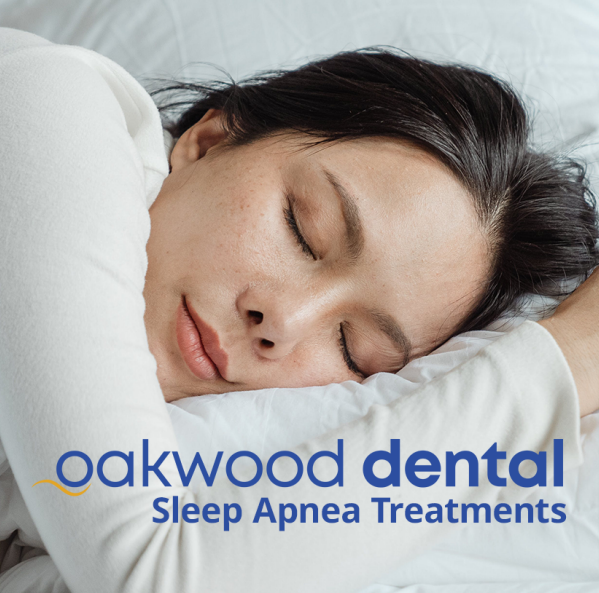As April ushers in the renewal of spring, it also marks National Stress Awareness Month—a dedicated time to examine how stress affects our physical and mental well-being. In our fast-paced world, stress has become an almost inevitable companion in daily life. However, what many don’t fully appreciate is the profound connection between stress and sleep quality, particularly for those suffering from sleep disorders like obstructive sleep apnea (OSA).

Understanding the Stress Epidemic
Stress is more than just feeling overwhelmed or anxious; it’s a physiological response with far-reaching effects throughout the body. The American Psychological Association reports that chronic stress is linked to the six leading causes of death: heart disease, cancer, lung ailments, accidents, cirrhosis of the liver, and suicide. Despite these alarming statistics, many people continue to accept high stress levels as a normal part of modern living.
In 2023, a nationwide survey found that 77% of Americans regularly experience physical symptoms caused by stress, and 73% experience psychological symptoms. These numbers have only increased in the post-pandemic landscape, where boundaries between work and personal life have blurred for many.
The Complex Relationship Between Stress and Sleep
The relationship between stress and sleep operates as a bidirectional highway. When we’re stressed, sleep often becomes elusive. Conversely, poor sleep increases our vulnerability to stress. This creates a potentially devastating cycle that can significantly impact overall health.
How Stress Disrupts Sleep
When you experience stress, your body activates its “fight or flight” response, releasing hormones like adrenaline and cortisol. These hormones are designed to prepare your body for immediate action—not for restful sleep. Specifically, stress affects sleep by:
The Stress-Sleep Apnea Connection: A Vicious Cycle
For the estimated 22 million Americans suffering from sleep apnea, the stress-sleep relationship takes on additional complexity. Obstructive sleep apnea occurs when the muscles in the throat relax excessively during sleep, causing breathing to stop and start repeatedly throughout the night.
When sleep apnea disrupts your breathing during the night, it creates a cascade of physiological responses:
This sequence leads to chronically elevated cortisol levels—the stress hormone—with wide-ranging health consequences.
Chronic elevation in blood pressure is a direct consequence of both stress and sleep apnea. Studies show that untreated sleep apnea significantly increases the risk of serious cardiovascular problems like heart attack, stroke, and atrial fibrillation. Sleep apnea is also strongly associated with metabolic dysfunction, including insulin resistance and type 2 diabetes. The chronic sleep disruption impairs immune function, making you more susceptible to illness, while research shows that people with OSA are five times more likely to experience clinical depression. Cognitive functions such as attention, memory, and executive function all suffer from fragmented sleep, and excessive daytime sleepiness dramatically increases accident risk through fatigue and microsleeps.
Meanwhile, chronic stress further impairs sleep quality by making it harder to fall asleep and stay asleep, creating a vicious cycle that takes a significant toll on health.
Recognizing the Signs of Sleep Apnea
Many people with sleep apnea remain undiagnosed because the symptoms occur during sleep. However, certain warning signs should prompt further investigation. These include loud, chronic snoring, witnessed breathing pauses during sleep, and gasping or choking episodes. Sufferers often experience morning headaches, excessive daytime sleepiness, and difficulty concentrating. Mood changes and irritability are common, as is high blood pressure that proves difficult to control. Many patients report waking with a dry mouth or sore throat, and experience nighttime sweating unrelated to room temperature.
If you experience these symptoms, discussing them with a healthcare provider is an important first step toward diagnosis and treatment.
Effective Treatment Options for Sleep Apnea

Fortunately, several effective treatments can break the stress-sleep apnea cycle and restore restful sleep.
CPAP Therapy
The gold standard for treating OSA is CPAP therapy (Continuous Positive Airway Pressure), which uses a machine to deliver pressurized air through a mask worn over the nose or mouth during sleep. This gentle air pressure keeps the airway open, preventing the collapse that causes breathing interruptions.
CPAP therapy offers numerous benefits. When used properly, it provides immediate elimination of apnea events. Patients typically experience reduced daytime sleepiness, improved blood pressure control, and better concentration and cognitive function. Perhaps most importantly, effective CPAP therapy significantly reduces the risk of serious cardiovascular complications.
However, despite its effectiveness, CPAP adherence remains a challenge. Many patients find the mask uncomfortable, claustrophobic, or disruptive to their sleep or their partner’s sleep. Recent innovations in mask design and machine features have improved comfort, but alternatives remain important for those who cannot tolerate CPAP.
Oral Appliance Therapy
For those who are not comfortable or compliant with CPAP, oral appliance therapy offers an effective alternative. Provided by specially trained dental professionals, these custom-fitted devices work by:
Modern oral appliances offer several advantages. They’re comfortable and custom-fitted to your unique mouth structure. They require no electricity, making them both easy to use and environmentally friendly. Their portable, travel-friendly design means treatment doesn’t have to be interrupted during trips. Unlike CPAP machines, they operate silently, and they’re non-intrusive to sleeping partners, which can be an important consideration for maintaining relationship harmony.
Research shows that while CPAP may be more effective at eliminating apnea events completely, oral appliances often achieve better long-term compliance. For patients with mild to moderate OSA, oral appliances can be equally effective as CPAP in improving quality of life and reducing health risks.
Lifestyle Modifications
In addition to medical treatments, certain lifestyle changes can significantly improve both sleep apnea symptoms and stress levels. Even modest weight loss can reduce the severity of sleep apnea for many patients. Regular exercise provides the dual benefit of reducing stress hormones while improving overall sleep quality. Learning to sleep on your side rather than your back can meaningfully reduce apnea events for some individuals.
Avoiding alcohol and sedatives, especially in the evening, is important as these substances relax throat muscles and potentially worsen apnea symptoms. Maintaining a consistent sleep schedule helps regulate your body’s internal clock and synchronize your sleep cycles. Various stress management techniques such as meditation, deep breathing exercises, and yoga practice can effectively reduce stress hormone levels and prepare the body and mind for restful sleep.
Taking Control of Your Stress and Your Sleep

Managing the interconnected challenges of stress and sleep apnea requires a multi-faceted approach:
The first crucial step is recognizing the problem—acknowledging that your sleep difficulties may have a medical cause rather than simply being “a bad night’s sleep.” If you suspect sleep apnea, seek professional evaluation by consulting with a sleep specialist. Diagnosis typically involves a sleep study, which can often be done in the comfort of your own home with portable monitoring equipment.
Once diagnosed, explore treatment options by discussing with your healthcare providers which approach might work best for your specific situation and preferences. Personal comfort and lifestyle considerations often play a significant role in treatment success.
Even with effective sleep apnea treatment, implementing stress reduction strategies remains important. Consider practices like mindfulness meditation, progressive muscle relaxation, and regular physical activity. Spending time in nature, nurturing social connections, and seeking professional counseling when needed can all contribute to stress reduction.
Creating a sleep-friendly environment is essential. Make your bedroom a sanctuary for sleep by keeping it cool, dark, and quiet. Remove electronic devices that emit blue light and disrupt sleep hormones. Invest in comfortable, supportive bedding, and establish a relaxing pre-sleep routine that signals to your body that it’s time to wind down.
Finally, monitor your progress by keeping track of your symptoms, energy levels, and mood to gauge the effectiveness of your treatment plan. Adjustments may be necessary as your condition or circumstances change.
The Rewards of Better Sleep and Reduced Stress
Addressing sleep apnea and stress doesn’t just eliminate symptoms—it transforms quality of life in profound ways. Patients who successfully manage their sleep apnea often report waking feeling truly refreshed for the first time in years. Many experience improved concentration and productivity at work, along with enhanced mood and significantly reduced irritability that benefits both professional and personal interactions.
Medical benefits frequently include better blood pressure control with reduced medication requirements. Many patients find that weight loss becomes easier once sleep quality improves, creating a positive cycle as weight loss further reduces apnea severity. With increased energy for physical activity and hobbies, many rediscover passions they had abandoned due to chronic fatigue.
Relationships often improve dramatically, both from the patient’s better mood and from the elimination of disruptive snoring that may have forced partners into separate bedrooms. Many patients report reduced anxiety about health concerns as symptoms resolve, and they discover greater resilience when facing life’s everyday challenges, having restored their body’s fundamental need for restorative sleep.
Conclusion
As we observe National Stress Awareness Month this April, consider the profound connection between stress and sleep quality. If you experience symptoms of sleep apnea—or live with someone who does—taking action could significantly improve your health and well-being.
The cycle of stress and disrupted sleep can be broken with proper diagnosis, effective treatment, and consistent stress management practices. Whether through CPAP therapy, oral appliance therapy, or lifestyle modifications, solutions exist to help you achieve the restful sleep your body and mind require.
Remember that addressing sleep apnea isn’t just about eliminating snoring or reducing daytime fatigue—it’s about protecting your cardiovascular health, enhancing your cognitive function, improving your emotional well-being, and ultimately, extending both the length and quality of your life.
Your journey toward better sleep and reduced stress begins with a simple step: reaching out to a healthcare professional to discuss your symptoms and concerns. That single action could be the first step toward transforming your nights and revitalizing your days.
This article was inspired by National Stress Awareness Month and the important connection between stress management and sleep health.

